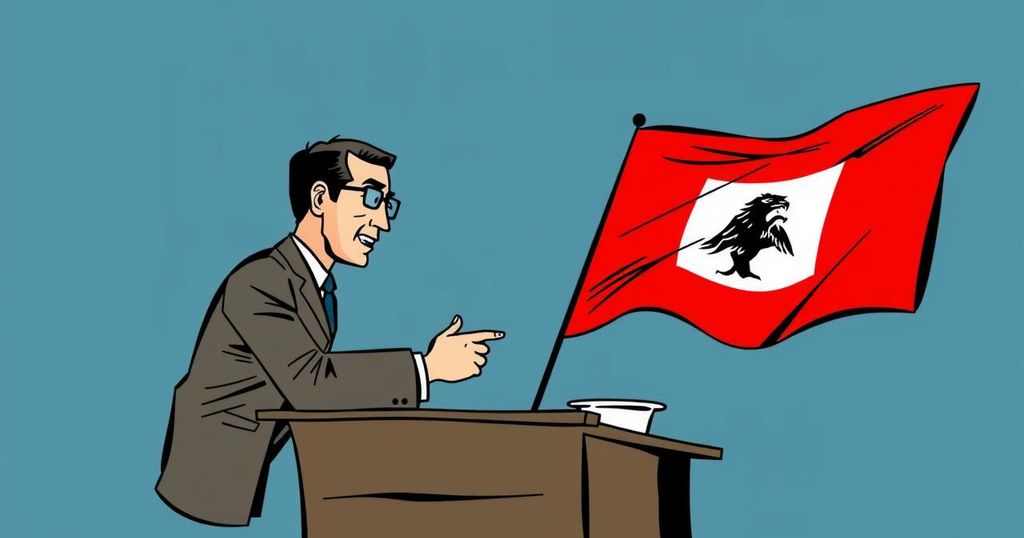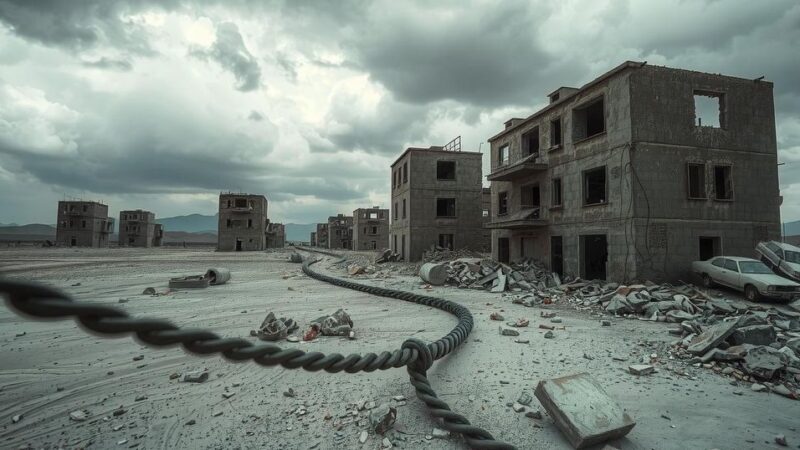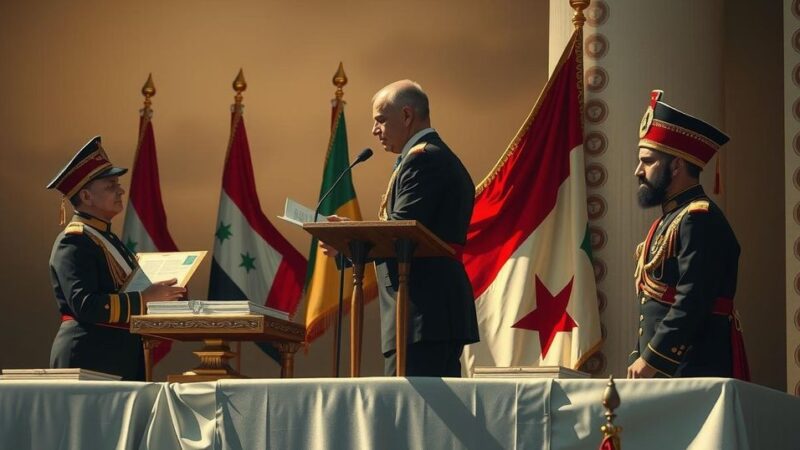Iran has supported Lebanon’s ceasefire negotiations with Israel as airstrikes continue. The U.S. has proposed a ceasefire draft, with diplomatic efforts signaling progress. Health reports indicate significant casualties in the ongoing conflict, amplifying the humanitarian crisis in Lebanon. Iranian officials affirm their backing for Lebanon and call for adherence to UN resolutions in ceasefire discussions.
Iran has publicly voiced its support for Lebanon’s endeavors in achieving a ceasefire with Israel, according to a senior Iranian official. As hostilities escalate, Israel has sustained airstrikes on Hezbollah positions over several days, following a period of cross-border conflicts. Diplomatic efforts, led by the United States, have surfaced to establish a ceasefire, with indications of progress emerging amid these violent exchanges. Reports from Reuters, citing Lebanese political figures, reveal that the U.S. ambassador to Lebanon recently proposed a ceasefire draft to the Lebanese Parliament speaker, Nabih Berri. Berri, who is backed by Hezbollah in the negotiations, engaged with Iranian official Ali Larijani for discussions on Friday. Larijani emphasized that Iran does not seek to undermine the U.S. plan, stating, “We are after a solution to the problems.” The longstanding alliance between Iran and Hezbollah, which Tehran founded and finances, has a significant role in these developments. Despite complications, a senior diplomat indicated optimism regarding the potential for a ceasefire, reflecting the necessity of time in negotiating a resolution. The outgoing U.S. administration has expressed urgency in achieving a ceasefire in Lebanon, even as efforts to address the Gaza conflict remain unresolved. The international community insists that any ceasefire must adhere to United Nations Security Council Resolution 1701, which concluded the 2006 war, stipulating the restriction of Hezbollah’s military capabilities. In a recent meeting, Prime Minister Najib Mikati reiterated Lebanon’s commitment to the implementation of Resolution 1701 and ceasefire measures. Since the conflict escalated in late September, Israel’s military actions have led to significant casualties and widespread displacement in Lebanon, exacerbating the humanitarian crisis. As the prospect of a ceasefire emerges, Israeli officials have noted a favorable forecast, coinciding with future diplomatic alignments in the U.S. government.
The current conflict between Hezbollah and Israel intensified in late September 2023, following a series of border clashes alongside hostilities in Gaza. Israel initiated military actions targeting Hezbollah in response to escalating threats and attacks, resulting in severe humanitarian impacts on Lebanon. The violations of UN Resolution 1701, which was designed to prevent hostilities between these two parties, are central to the ongoing dialogue about a ceasefire. The geopolitical dynamics involving Iran, a primary supporter of Hezbollah, further complicate ceasefire negotiations as global powers push for stability in the region.
In conclusion, Iran’s backing of Lebanon’s ceasefire negotiations underscores the intricate geopolitical landscape surrounding Hezbollah and Israel. While the prospects for a ceasefire appear promising, they rely heavily on compliance with UNSC Resolution 1701 and the cooperation of international stakeholders. The tragic humanitarian toll of the ongoing conflict amplifies the urgency for a resolution that allows for peace in the region and supports the Lebanese populace.
Original Source: indianexpress.com






